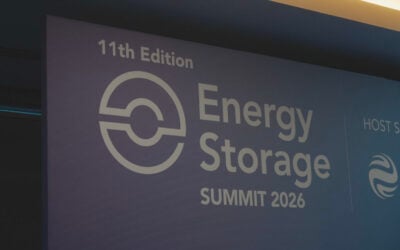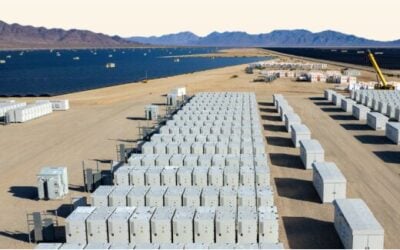Bosch looks likely to become the latest big name to participate in a government-funded micro-grid trial, with the company proposed to receive almost US$3 million from California’s energy policy planning agency.
Announced as one of the proposed winners of a competitive solicitation, the Germany-headquartered engineering group could get US$2.8 million from the California Energy Commission to design, build and connect a direct current (DC) micro-grid platform for a single building. Incorporating solar, storage, energy efficient lighting and other components, the principle is that the micro-grid should operate at a high penetration of renewable energy.
It is hoped by Bosch that the company will be able to demonstrate the viability and effectiveness of a so-called “building level” DC micro-grid and that it will compare favourably with alternating current (AC) micro-grids, or with PV arrays connected to a centralised regional or national grid network. According to Bosch, this could make going ‘net zero energy’ much cheaper for commercial buildings.
Bosch’s DC micro-grid for the energy commission will be housed in a parts distribution centre for the American arm of Honda Motors. The installation will connect solar PV arrays to DC lighting, DC ventilation systems and DC energy storage, forming a single-building micro-grid through a 380 volt bus.
Try Premium for just $1
- Full premium access for the first month at only $1
- Converts to an annual rate after 30 days unless cancelled
- Cancel anytime during the trial period
Premium Benefits
- Expert industry analysis and interviews
- Digital access to PV Tech Power journal
- Exclusive event discounts
Or get the full Premium subscription right away
Or continue reading this article for free
Bosch is partnering on the project with Navigant Consulting, which through its research division also closely watches the energy storage and grid sectors. Other partners included California Lighting Technology Center (CLTC), part of the University of California, energy storage provider Imergy Power Systems and Maxwell Technologies, a California-based company specialising in energy storage and power delivery systems. According to Bosch, the partnering organisations will raise US$1.790 million in in-kind and matching funds for the project. Contracts are still to be signed with the energy commission to confirm the project’s go-ahead, with Bosch hoping to complete construction by February 2018.
Bosch says that along with its partners on the project, it will raise around US$1.8 million of funding. Image: Bosch.
As California moves to install more energy storage, partly through Assembly Bill 2514 (AB2514) and to add more renewable energy, commercial and industrial storage also has a stronger business case attached to it in the west coast state and elsewhere in the US than residential storage. This is mainly due to much higher time of use charges for commercial and industrial users based on monthly peaks, coupled with the fact that the vast majority of US states have residential solar net metering policies in place that are considered to already be fairly economically attractive for consumers, meaning that at residential level, at present, the main driver for storage is in providing backup power in case of outages.
Along with Bosch, the California Energy Commission has named a number of other organisations, including academic institutions, as proposed recipients of funding for demonstration projects of micro-grids, grid-linked electric vehicles (EVs) and other low carbon technologies. High profile micro-grid trials are underway elsewhere including a project by SAFT in Japan, while Imergy is providing a ‘smart micro-grid’ for the US navy.
North America’s biggest PV installer SolarCity, last week announced that it too will step up its involvement in the micro-grid sector. The leasing company, which is currently building a 1GW capacity PV module factory in Buffalo, New York, will make their GridLogic product available worldwide, offering no-money-down options for a solution that will include Tesla stationary storage batteries. GridLogic is intended to work independently or in conjunction with the grid.





